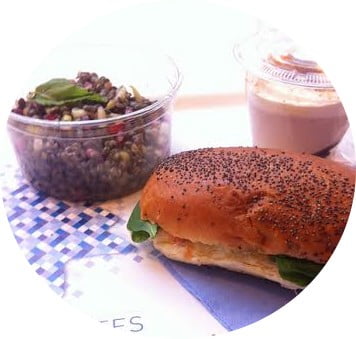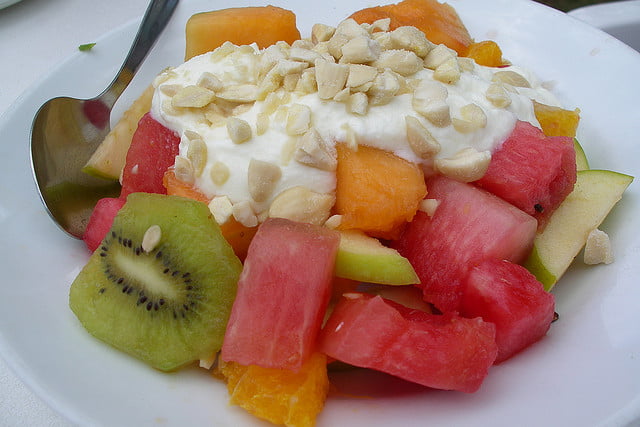The Happiness in Paris experiment – part four: health and well-being

Is our strict Anglo-Saxon approach the only way to go, or can we learn something from the French?
The concepts of happiness and well-being are, for me, inextricably linked. And so, as part of my ‘Happiness in Paris’ experiment, I decided to investigate the French approach to health and well-being.
As an Australian girl living in France I am constantly running up against cultural norms that challenge my long held beliefs. And never more so than on the topic of health and well-being.
The French attitude to exercise
A casual conversation around the lunchroom of a typical Australian office reveals that in order to get results, Australian women consider vigorous, punishing exercise regimes to be the most efficient. Boot camps are growing in popularity, 24-hour gyms have become the norm and then of course, there is the Cross-Fit revolution.
By contrast, my experience with French women is that their choice of exercise is closely linked to its propensity for pleasure. Zumba, salsa and yoga classes once a week are common choices, and I’m yet to meet a French person who comprehends the concept of boot camp.
The French food factor
Whilst I was brought up with the maxim ‘a good day starts with a good breakfast’, many French people I know skip breakfast altogether. If eaten, the French breakfast is traditionally sweet, and whilst croissants might not be on the daily menu, bread topped with butter and jam, or honey, is.
Health conscious Australians, by contrast, will regularly opt for fruit salad and yoghurt, ‘healthy’ breakfast cereals, or perhaps a protein-rich omelette. Lunchtime is a single-course affair of either a salad, sandwich, or soup. And, with more time to prepare and enjoy it, dinner is often the biggest meal of the day.

At Cojean, for example, French diners select a soup or salad, along with a sandwich and a dessert. After a long day at work, most French people keep dinner simple and light.
Then, of course, there is the snack debate. In Australia, morning and afternoon snacks are the norm, but in France, the government advises against them. When I asked a French colleague about this recently, she said:
“Only children eat afternoon snacks. Oh, and pregnant women!”
The French weigh-in regularly

When a pregnant French friend confessed she felt she wasn’t carrying her baby weight well; another French girl agreed, and added a helpful, “Well, you weren’t that skinny to begin with.” And still, everyone parted as friends.
I’ve also heard stories from slim, healthy French girlfriends about visits to the doctor for antibiotics ending with a firm recommendation that she drop a few kilos. Even my grandfather-in-law takes great delight in greeting family members with his opinion on whether they’ve gained or lost weight since their last visit.
Reconciling the French and Australian attitudes
As it’s all about Happiness in Paris, for my own personal happiness and well-being here in France, I’ve decided upon a combination of factors. I’m going to keep the carbohydrates and ditch the boot camp. Up the yoga attendance but skip the sugary breakfast. Enjoy a bigger lunch when I have time, but be satisfied with a quick sandwich when I don’t.
And you certainly won’t find me commenting on my friends’ weight anytime soon.
Have you noticed the difference in attitudes between the French and Australians? What do you think? Share your thoughts with us below!
Read more on the ‘Happiness in Paris’ experiment:Part 1: introduction
Part 2: writing in cafés
Part 3: living on French time
Part 4: health and well-being (this page)
Part 5: living vicariously
Part 6: helping others Image Credits
1. Private sunshine, by David Jubert on Flickr.
2. 6 week body week 4, by Dangerously Fit on Flickr
3. Fruit salad with yoghurt and granola, by Magalie L’Abbé on Flickr
4. Cojean, by vincen-t on Flickr
5. Parisienne, by four12 on Flickr









When I was in France I certainly noticed the lack of eating and drinking ‘on the go’. When I did eat while walking down the street I could feel French eyes upon me. This probably gave me away as a tourist (or maybe they thought I was pregnant ;)?).
Perhaps the lack of eating on the go is a combination of their no snacking policy and their culture of sitting down to eat… What are your thoughts Alison?
Hi Alex, thanks for your comment. It’s true that I rarely see people eating on the go. My job sometimes means grabbing a quick sandwich to eat in the metro on my way to the next class, and I am often treated to slightly sarcastic bon appétits from other passengers. So yes, I’d agree it likely plays a role in the overall approach to healthy eating!